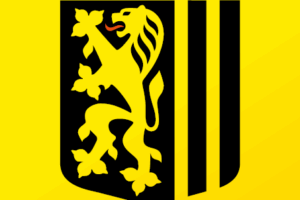
The home secretary, Shabana Mahmood, has announced plans to hand police the powers to impose tougher conditions on protests by taking account of the “cumulative impact” of previous similar demonstrations, prompting an outcry from civil liberty groups. How does the right to protest currently work in England and Wales and what could the proposed changes mean?
What steps are required to organise a protest?
There is no need to apply for permission for a demonstration but, in the case of a march, there is a requirement to give police at least six days written notice. This must include the date and time of the protest march, its route and the names and addresses of the organisers.
There is an exemption where “it is not reasonably practicable to give any advance notice of the procession”. This could apply where it is an immediate response to an event that has occurred.
For a stationary protest, there is no need to inform the police.
How can police restrict protests?
Where a senior officer reasonably believes a protest may cause serious public disorder, serious damage to property, serious disruption to the life of the community, or its purpose is to intimidate others, they can impose “such conditions as appear to the officer necessary”.
Under the Police, Crime, Sentencing and Courts Act (PCSC) 2022, the officer may also act if they consider that noise generated by the protest may lead to serious disruption or have a relevant impact on people in the area.
Restrictions can include – but are not limited to – changing the location/route of the protest, the timings/how long it lasts, and capping the amount of people who attend.
The Palestine solidarity marches, which the proposed new rules have been prompted by, have had restrictions placed on start times and routes. And a protest in support of Palestine, planned for the day Yvette Cooper set out her intention to proscribe the direct action group Palestine Action, was moved to Trafalgar Square in central London after the Met imposed an exclusion zone preventing it being held outside parliament.
Can a protest be banned?
A commissioner or chief constable can prohibit a protest but the consent of the home secretary is needed and the threshold is high. They can ban protest marches in a specific area for up to three months if they reasonably believe conditions would not be enough to prevent serious public disorder because of the specific circumstances of that area.
They can ban stationary protests within a 5-mile radius for up to four days if they reasonably believe that a planned protest is likely to be trespassing and may cause either serious disruption to the life of the community, or significant damage to important land, buildings or monuments.
Human rights groups argue that severe restrictions (see No 2 above) can have a similar effect to a ban.
How have police powers to restrict protesters changed?
Parliament has increased them significantly in recent years in response to environmental protests, through the PCSC and the Public Order Act 2023. For example, the PCSC introduced the noise trigger, granted powers to impose wider conditions on stationary protests and created the statutory offence of public nuisance with a maximum sentence of 10 years, which has been used against many climate protesters.
The Public Order Act brought in new offences, again aimed at climate protesters, for actions such as locking on, tunnelling and interfering with key national infrastructure. It also widened stop and search powers in relation to protest.
What are the new changes proposed by the government?
Police will be granted powers to impose tougher conditions on static protests or marches by taking account of the “cumulative impact” of previous similar demonstrations.
The then home secretary, Suella Braverman, tried to do the same but it was quashed by the courts after a legal challenge by the civil liberties group Liberty. Labour’s attempt could also face a legal challenge but there are differences in that Braverman used a statutory instrument and changed the definition of “serious public disorder”, lowering it to cover any crime “more than minor”. Labour intends to use primary legislation, namely the crime and policing bill.
Akiko Hart, Liberty’s director, said police “already have immense powers to restrict protests – handing them even more would undermine our rights further”.





